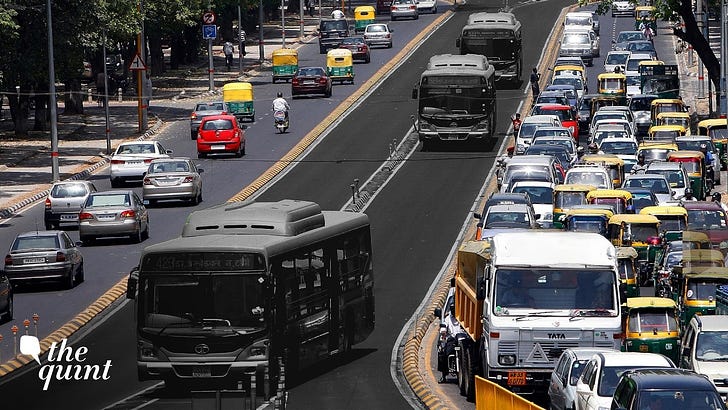TheQuint@10: How Indian Cities Failed Public Transport
Celebrating our most influential documentaries that have shaped conversations over the years.
Dear Reader,
In December 2024, we investigated India’s transport crisis in: How Indian Cities Failed Public Transport. While petrol prices climb and Bangalore metro fares rise, India’s public transport is becoming more expensive—without becoming more useful.
Metros get billions in funding, yet ridership struggles. Buses, which serve more people, are being ignored. Who is urban transport really built for?
Most Indian cities are investing in metro projects that few people actually use. "Metro fails where trip distances are small, which is much of India," says Shreya Gadepalli, an urban mobility expert. Over 90% of work commutes in Indian cities are under 10 km, making metro networks inefficient for daily use.
Buses, however, could bridge this gap—but funding isn’t going there.
"A kilometer of metro costs over ₹500 crore and serves 20,000 people per day. The same investment could provide 500 buses, serving four to five lakh people," says Gadepalli.
Metro expansion without a strong bus network only forces more people onto bikes, cabs, and personal cars—leading to even worse congestion. Public transport should be about access and affordability, but India's policies favor high-cost projects that benefit few.
Over the years, The Quint has challenged conventions and highlighted urgent matters with such documentaries. To explore more, CLICK HERE.
We have remained committed to asking the tough questions — from exposing misinformation to delivering impactful human rights reporting, our newsroom has relentlessly pursued stories that drive change. Join us in celebrating a decade of fearless journalism. Get 10% OFF* on all Membership plans — Become a Quint Member* today!
Thanks,
ZIJAH SHERWANI
Creative Director
*Already a member of The Quint? What a star! Your support empowers us to question everything.
Want us to cover a story? Write to us at editor@thequint.com or reply to this email.
Share
Previous




